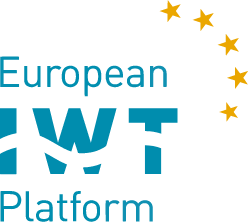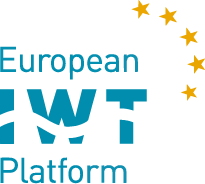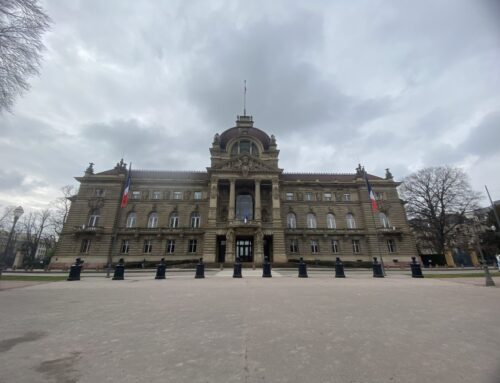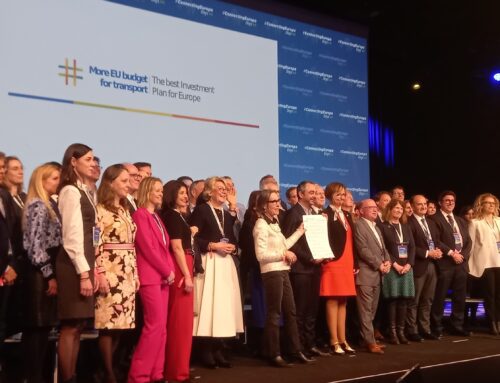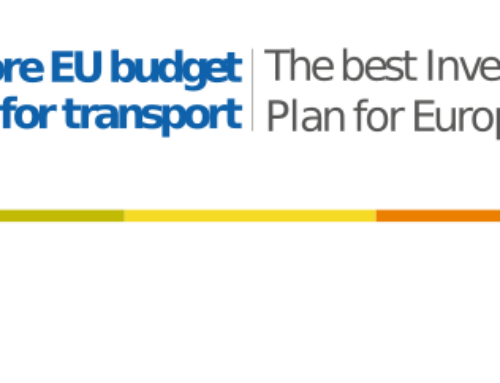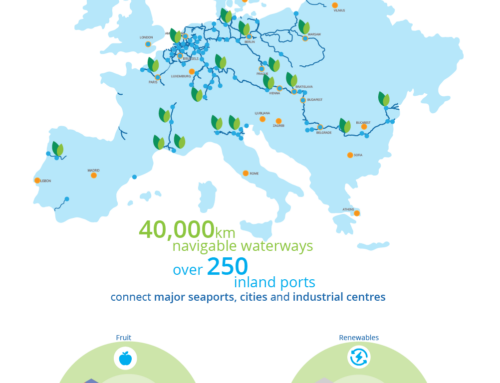Motivation and objectives
The transport sector not only represents almost a quarter of Europe’s greenhouse gas (GHG) emissions, but is also the main cause of air pollution in cities. Although emissions from the sector have seen a decline since 2007, they still remain higher than in 1990. The European Commission’s Low-emission Mobility Strategy, adopted in 2016, has initiated a shift towards a low-emission and sustainable transport ecosystem. Many innovative solutions in transport, such as micro-mobility services and zero-emission freight vehicles, that can help to decarbonise the transport sector have been developed through public and private funding. Those solutions could potentially significantly reduce emissions and air pollution of the sector, if implemented widely.
Although much effort has been made to facilitate market uptake of innovation in transport (e.g. HORIZON Result Booster), progress remains slow, with many innovations not having been implemented or only at a smaller scale, thus limiting their contributions.
We, the consortium members of the 7 HORIZON 2020 Coordination and Support Actions Projects, have realised the importance of accelerating market uptake of sustainable and innovative solutions and decided to unify our efforts to advance progress.
Therefore, we launch this Task Force to:
– raise awareness of project activities on advancing market uptakes of innovation in transport to a wide range of stakeholders including high-level policy makers;
– mobilise resources from projects and other initiatives to address key obstacles, thus facilitating market uptake of innovations;
– create cross-project, cross-sectoral cooperation to maximise impacts of project activities and avoid duplication.

Work streams
Implementation of innovative solutions in transport faces many obstacles, particularly through the complex interplay of stakeholders involved, such as public authorities, and end users. Further challenges also include existing regulations and policies, financing, lack of required skills, etc.
This Task Force will initially address the following four main obstacles:
I. Mismatch of demand and supply; innovative suppliers may not reach potential users and potential users may not be aware of or able to find innovations they need.
II. Lack of funding or financial support for implementation and high risk of implementation of innovative solutions; implementation of innovation may require funding, even though in the long term it will lead to economic benefits; investment is also needed to make innovative solutions ‘market-ready’ or ‘implementation-ready’; risk of implementation may include lack of political support (due to change of government or policy priorities), and lack user acceptance.
III. Inability to measure impact of innovation, thus complicating the formulation of reliable targets. Without evidence-based impacts, decision makers (either in the public or in the private sector) may hesitate to implement innovations.
IV. Limited technical knowledge and insufficient vision; buyers and implementation practitioners may lack sufficient technical knowledge to provide support to implementation of innovation, and they also may not have the vision for using innovation to help decarbonisation of the sector, as well as increasing efficiency and enhancing competitiveness.
The task force consists of four work streams to specifically address the main obstacles:
– Work Stream 1: Matchmaking services between innovation suppliers and buyers
– Work Stream 2: Finance & De-risking
– Work Stream 3: Best practice sharing
– Work Stream 4: Capacity building and guideline development
Background Information about the 7 Projects funded by HORIZON 2020
ASSURED-UAM will look at scenarios for up to 10 use cases within 5, 10 and 15-years’ timeframes, make knowledge base and policy recommendations in 8 languages. It will create standards for products and processes as well as tools for exchange and learning of Urban Air Mobility, project development support and technical assistance. There will be UAM community integration and wide consultations, cooperation, and synergy with other projects, industry and user groups. More information on their website: https://assured-uam.eu/.
BOOSTLOG aims to boost impact generated from future EU funded R&I projects to contribute to EU policy objectives, address societal challenges, and increase EU competitiveness. The project will map more than 160 projects funded by FP5, FP6, FP7 and HORIZON 2020, and identify successful implementation cases into the market and regulations and will develop actionable reports on various subjects prioritised by stakeholders. More information on their website: https://www.etp-logistics.eu/boostlog/.
ENTRANCE offers a common and legitimate European Matchmaking platform and complementary off-line services designed to mobilise financial resources to accelerate the market access and scale up of “first of a kind” sustainable transport solutions, thereby reducing the European CO2 emissions and pollutants caused by the transport and mobility sector. More information: https://www.entrance-platform.eu/.
FastTrack helps cities accelerate the roll-out of sustainable mobility innovations through knowledge-exchange and capacity building. It works with 24 urban and peri-urban areas to help them accelerate their deployment of sustainable mobility innovations. This work revolves around four topical clusters, each led by an Ambassador City. Throughout its learning programme – featuring a bottom-up needs assessment, e-learning opportunities, and Capacity Building Weeks – FastTrack brings its community of local areas together with experts and solution providers to overcome the barriers to innovation deployment. More information: https://fasttrackmobility.eu/about/project.
FUTURE-HORIZON will support ERTRAC, related HORIZON EUROPE partnerships and the European Commission in identifying future research needs for upcoming R&I programmes, in order to further facilitate a sustainable and efficient road transport system in Europe, while also fostering international cooperation. More information: https://www.ertrac.org/index.php?page=future-horizon.
PLATINA3 The main objective is to provide the knowledge base for the implementation of the EU Green Deal in view of further development of the European Commissions’ IWT action programme (NAIADES) towards 2030. The project aims to improve the impact and broadening stakeholder engagement in support of transport research and innovation in Inland Waterway Transport (IWT). More information: https://platina3.eu/what-we-do/.
RECIPROCITY aims at transforming European cities into climate-resilient and connected, multimodal nodes for smart and clean mobility through an innovative four-stage replication approach. The project will equip at least 20 cities across Europe, of varying size and mobility demand, with necessary tools, knowledge, contacts and methods to accelerate the replication of existing innovative mobility solutions. More information: https://reciprocity-project.eu/about/.
